
By ANDREW POWELL
Published: April 22, 2016
MUNICH — Vasily Petrenko’s debut at Bavarian State Opera this weekend prompts a glance at two Russian-born, modestly profiled conductors who have built distinct careers in Western Europe while sharing a last name. The guest from Liverpool will lead Boris Godunov, last revived two years ago by company Generalmusikdirektor Kirill Petrenko.
Inviting Vasily to work in Kirill’s house was sweet, ingenuous. After all, the two Petrenkos are what trademark attorneys call “confusingly similar” marks, a factor that doesn’t vanish just because real names are involved, or because it’s the arts. Are artists products? Their work is, notwithstanding the distance from commerce.
The Petrenkos are not of course the first conductor-brands to overlap, but unlike the Kleibers or Järvis, Abbados or Jurowskis, no disparity of talent or generation neatly separates them. Then, inescapably, there is the matter of dilution: a “Toscanini” needs no specifier.
As it happens, agents have promoted the Petrenkos as if with accidental care over geography. Although both men have enjoyed positive forays Stateside, awareness of them in Europe diverges. For a full decade, Vasily has been the “Petrenko” of reference in Britain. Kirill has been “Petrenko” in Germany.
Kirill has had such minimal renown in Britain, in fact, that retired Bavarian State Opera chief Peter Jonas last summer on Slipped Disc could report the following about the Bavarian State Orchestra’s upcoming European tour: “The [orchestra’s] committee and their management offered themselves to the [BBC] Proms for 2016 … and were sent away with the exclamation, ‘Oh no … . Kirill Petrenko? We do not really know about him over here.’ … The tour will happen all over Europe but without London.” Indeed it will.
In the meantime, Calisto Bieito’s staging of Boris Godunov gets a three-night revival April 23 to 29 with a strong cast: Sergei Skorokhodov’s pretender, Ain Anger’s chronicler and Alexander Tsymbalyuk’s riveting Boris. How will Vasily grapple with the (1869) score? Opera featured prominently in his career only at the start.
| |
Kirill |
Vasily |
| |
Кирилл Гарриевич Петренко |
Василий Эдуардович Петренко |
| born |
Feb. 11, 1972, in Omsk — 44 |
July 7, 1976, in St Petersburg — 39 |
| hair |
auburn, curly |
blond, straight |
| eyes |
brown |
gray |
| height |
5 feet 3 inches |
6 feet 5 inches |
| weight (est.) |
145 lbs., trim |
180 lbs., trim |
| training |
Vorarlberg State Conservatory in Feldkirch |
St Petersburg Conservatory |
| influences |
Bychkov, Chung, Eötvös, Lajovic |
Jansons, Martynov, Salonen, Temirkanov |
| early job |
Kapellmeister, Volksoper, Vienna, 1997–99 |
Resident Conductor, Mikhailovsky Theater, St Petersburg, 1994–97 |
| now |
Generalmusikdirektor, Bavarian State Opera |
Sjefdirigent, Oslo Philharmonic; Chief Conductor, Royal Liverpool Philharmonic |
| lives in |
refused to disclose |
Birkenhead Park, Merseyside |
| companionship |
rumored to have platonically dated soprano Anja Kampe |
married to Evgenia Chernysheva, choral conductor and music tutor; Sasha (11), Anna (2) |
| faith |
private |
Russian Orthodox |
| favorite team |
refused to disclose |
Zenit St Petersburg (soccer) |
| diplomacy |
on Ukraine: “I observe the conditions there with great concern. What is happening there is anything but normal. A political solution [is needed] that does not impinge on Ukraine’s sovereignty.” Speaking at the National Theater, March 6, 2014 |
on women conductors: “[Orchestras] react better when they have a man in front of them … . A cute girl on a podium means that musicians think about other things.” Quoted in The Guardian, Sept. 2, 2013 |
| humor |
while working with Miroslav Srnka on his 2015 opera South Pole: “If the composer is dead, you’d like to ask him questions, but you can’t. If [he] is alive, you can ask him questions, but sometimes you’d prefer he would be already dead.” Reported by Slipped Disc, Jan. 18, 2016 |
while attempting damage control: “We were saying that because a woman conductor is still quite a rarity … , their appearance [on] the podium, because of the historical background, always has some emotions reflected in the orchestra.” Quoted in The Telegraph, May 8, 2014 |
| distinctions |
|
Honorary Scouser
Echo Klassik Award |
| achievement |
survived nine cycles conducting Der Ring des Nibelungen at Bayreuth |
completed a Shostakovich cycle for Naxos |
| strengths |
Mussorgsky, Strauss, Elgar, Scriabin, Berg |
Shostakovich |
| weakness |
Donizetti (and probably Verdi) |
|
| what John von Rhein said |
“Solidity of technique, quality of leadership, depth of musical ideas and ability to strike a firm rapport with [Chicago Symphony Orchestra] members … [determine whether a conductor] stands or falls … . By all these standards [he] sent the needle off the symphonic Richter scale at his first concert.” March 2012 CSO debut |
“His beat is clear and he has a knack for focusing on the essentials, his long fingers fluttering in a highly expressive manner … . He inspired the [Chicago Symphony Orchestra] to go well beyond its normal megawatt virtuosity, and this made for a blistering account of the Shostakovich [Tenth].” Dec. 2012 CSO debut |
| CDs |
 |
 |
| |
Suk’s Asrael Symphony and Pfitzner’s opera Palestrina for CPO and Oehms |
Rachmaninoff’s First Symphony and the Shostakovich Cello Concertos with Truls Mørk for Warner and Ondine |
| career trajectory |
modest inclination |
less modest inclination |
| compass setting |
north, tardily |
south, east, west |
Placing the two Petrenkos side by side here, like baseball cards, meant compiling at least some personal facts along with the musical. So, three questions went to the conductors’ handlers. How tall is he? Where does he live (part of town)? What’s his favorite sports team?
This proved awkward, however, especially on one side, and hitherto-cordial staffers turned as cool as, well, trademark attorneys. Vasily’s people cooperated with partial answers. Kirill’s, deep inside Bavarian State Opera, stonewalled: “Mr. Petrenko generally does not wish to answer any personal questions.”
As it turned out, Vasily was on record with full answers over the years to all three questions for various media outlets. The man is an open book. This left Kirill’s side with unflattering holes. But the opera company’s hands were tied. Apparently under instructions from the artist, nobody could even confirm he lives in Munich (where he has drawn a paycheck for 30 months already). And he may not.
Bavarian State Opera: “What’s not to understand about ‘Mr. Petrenko does not wish to answer any personal questions’? Who puts out the rule that a conductor … does have to comprehend or be willing to be part of public relations? … So, in fact, we do not want to convey anything to anybody. This is the ‘line to be drawn’ from our side.”
Mention of Vasily went over badly. BStO: “What kind of idea is it anyways to compare two artists because they share the same last name?” Prepared descriptors accompanied the rhetoric: “ridiculous” and a “game.” How not to kill a story.
Shown the data for the above table, the opera company took to sarcasm: “Yes, sure, [inventing] height and weight [measurements] is of course totally acceptable.” But Kirill’s height had become public half a year ago* at ARD broadcaster Deutsche Welle. BStO did not either know this or wish to share the knowledge. Its hapless official scanning DW: “Oh, it’s on the Internet! It’s gotta be true!”
[*Earlier actually: Lucas Wiegelmann included it in an excellent 2014 discussion for Die Welt.]
Photos © Bayerische Staatsoper (Kirill Petrenko), Royal Liverpool Philharmonic (Vasily Petrenko)
Related posts:
Petrenko’s Sharper Boris
Portraits For a Theater
Bieito Hijacks Boris
Nazi Document Center Opens
Petrenko to Extend in Munich
Tags:Ain Anger, Alexander Tsymbalyuk, Bavarian State Opera, Bavarian State Orchestra, Bayerische Staatsoper, Bayerisches Staatsorchester, Boris Godunov, Commentary, Kirill Petrenko, München, Munich, Mussorgsky, News, Oslo Philharmonic, Royal Liverpool Philharmonic, Sergei Skorokhodov, Vasily Petrenko
Posted in Munich Times | Comments Closed
Sunday, March 13th, 2016
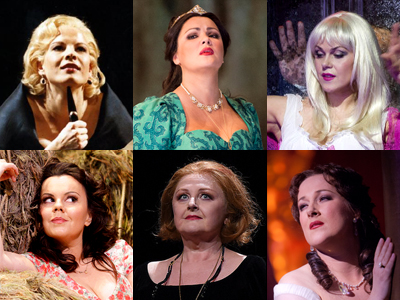
By ANDREW POWELL
Published: March 13, 2016
MUNICH — Some contracts come with strings attached, others with husbands. In a remarkable set of coincident artistic priorities for company boss Nikolaus Bachler — or a broad capitulation — Bavarian State Opera’s 2016–17 season, announced today, features no fewer than six divas in performance with their husbands. Edita Gruberová, Elīna Garanča and Kristine Opolais will star in Roberto Devereux, La Favorite and Rusalka while their other halves conduct. Diana Damrau, Anna Netrebko and Aleksandra Kurzak will headline Lucia di Lammermoor, Macbeth and La Juive while alongside them their spouses sing. In another family tie, Vladimir Jurowski has apparently been allowed to abandon the new Ognenny angel he led (electrically) this season in favor of … his dad. Small wonder 2016–17 is dubbed “Was folgt”: What follows.
Photos © Wiener Staatsoper (Elīna Garanča), Opernhaus Zürich (Anna Netrebko), Bill Cooper for the Royal Opera House (Kristine Opolais), Catherine Ashmore for the ROH (Aleksandra Kurzak, Diana Damrau), Wilfried Hösl (Edita Gruberová)
Related posts:
Kaufmann, Wife Separate
Antonini Works Alcina’s Magic
Manon, Let’s Go
Poulenc Heirs v. Staatsoper
Concert Hall Design Chosen
Tags:Aleksandra Kurzak, Bavarian State Opera, Bayerische Staatsoper, Commentary, Diana Damrau, Edita Gruberová, Garanča, Kristine Opolais, La Juive, Lucia di Lammermoor, Macbeth, München, Munich, Netrebko, News, Nikolaus Bachler, Ognenny angel, Roberto Devereux, Vladimir Jurowski
Posted in Munich Times | Comments Closed
Thursday, January 7th, 2016
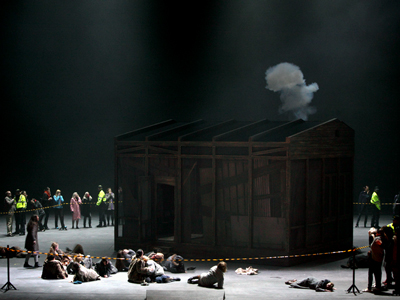
By ANDREW POWELL
Published: January 7, 2016
MUNICH — Bavarian State Opera will defy the heirs of Francis Poulenc and proceed with revival performances of its literally explosive staging of Dialogues des Carmélites later this month, the company said today.
The 2010 production by Dmitri Tcherniakov departs from the scheme of the composer and the source novelist, Georges Bernanos, in several ways and has been described by the heirs as a “trahison.” Not the least of its transgressions is a substitution in the climactic scene: a deadly gas blast and one self-sacrifice (by Blanche) replace the serial guillotining of the titular nuns laid out graphically in the music.
In a Dec. 23 letter to the Munich company, the heirs demanded that the “rights-infringing staging of the work (ihren Rechten verletzenden Aufführung des Werkes)” be put to “no further use.”
But a slow-won French court victory for the heirs last October constrained only BelAir Classiques and Mezzo TV from, respectively, selling DVDs of the production and screening it. The estates of both Poulenc and Bernanos had begun legal proceedings in October 2012, perhaps not aware of the nature of Tcherniakov’s efforts until BelAir’s DVD release that year. The last onstage revival came, by coincidence, the same month.
Poulenc’s 1956 opera is evidently less tightly controlled, or protected, by his heirs than is, for example, Gershwin’s 21-years-older Porgy and Bess by the American composer’s estate.
In justifying the resolve to proceed, Bavarian State Opera’s Geschäftsführender Direktor Roland Schwab said: “In the context of an earnest grappling with the work, the stage direction must have the freedom to deviate from history. Thus the work is not disfigured, but rather its ideas are depicted from today’s viewpoint.”
The company also noted it had made no alteration to libretto or score. This despite the stripping out of all Christian reference as well as the guillotining from the stage action. BStO Intendant Nikolaus Bachler is a firm, one might say notorious, defender of unfettered Regietheater.
Not only will the show go on, but Bavarian State Opera is supporting BelAir Classiques and Mezzo TV in their appeal of the October court decision, the company said.
Scheduled to sing the opera Jan. 23 to Feb. 1 are Christiane Karg as Blanche, Anna Christy as Constance, Anne Schwanewilms as Lidoine and Stanislas de Barbeyrac as the Chevalier. Susanne Resmark and Sylvie Brunet reprise their roles as Marie and de Croissy on the banned 2010 DVD. Bertrand de Billy conducts.
Photo © Wilfried Hösl
Related posts:
Poulenc DVD Back On Market
Thielemann’s Rosenkavalier
Mélisande as Hotel Clerk
Tonhalle Lights Up the Beyond
Antonini Works Alcina’s Magic
Tags:Bavarian State Opera, Bayerische Staatsoper, BelAir Classiques, Commentary, Dialogues des Carmélites, Dmitri Tcherniakov, Mezzo TV, München, Munich, News, Nikolaus Bachler, Poulenc, Roland Schwab
Posted in Munich Times | Comments Closed

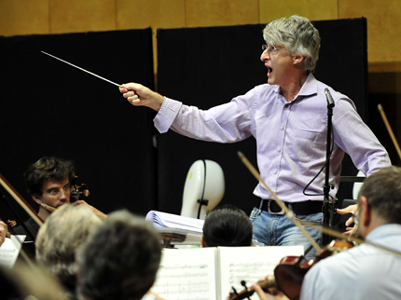



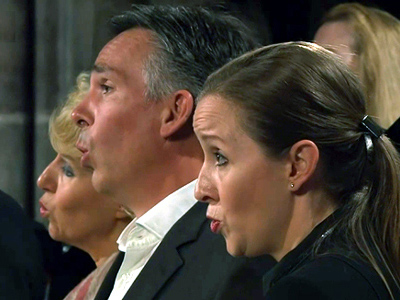
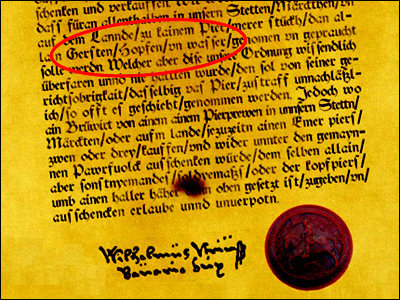
Petrenko Hosts Petrenko
Friday, April 22nd, 2016By ANDREW POWELL
Published: April 22, 2016
MUNICH — Vasily Petrenko’s debut at Bavarian State Opera this weekend prompts a glance at two Russian-born, modestly profiled conductors who have built distinct careers in Western Europe while sharing a last name. The guest from Liverpool will lead Boris Godunov, last revived two years ago by company Generalmusikdirektor Kirill Petrenko.
Inviting Vasily to work in Kirill’s house was sweet, ingenuous. After all, the two Petrenkos are what trademark attorneys call “confusingly similar” marks, a factor that doesn’t vanish just because real names are involved, or because it’s the arts. Are artists products? Their work is, notwithstanding the distance from commerce.
The Petrenkos are not of course the first conductor-brands to overlap, but unlike the Kleibers or Järvis, Abbados or Jurowskis, no disparity of talent or generation neatly separates them. Then, inescapably, there is the matter of dilution: a “Toscanini” needs no specifier.
As it happens, agents have promoted the Petrenkos as if with accidental care over geography. Although both men have enjoyed positive forays Stateside, awareness of them in Europe diverges. For a full decade, Vasily has been the “Petrenko” of reference in Britain. Kirill has been “Petrenko” in Germany.
Kirill has had such minimal renown in Britain, in fact, that retired Bavarian State Opera chief Peter Jonas last summer on Slipped Disc could report the following about the Bavarian State Orchestra’s upcoming European tour: “The [orchestra’s] committee and their management offered themselves to the [BBC] Proms for 2016 … and were sent away with the exclamation, ‘Oh no … . Kirill Petrenko? We do not really know about him over here.’ … The tour will happen all over Europe but without London.” Indeed it will.
In the meantime, Calisto Bieito’s staging of Boris Godunov gets a three-night revival April 23 to 29 with a strong cast: Sergei Skorokhodov’s pretender, Ain Anger’s chronicler and Alexander Tsymbalyuk’s riveting Boris. How will Vasily grapple with the (1869) score? Opera featured prominently in his career only at the start.
Echo Klassik Award
Placing the two Petrenkos side by side here, like baseball cards, meant compiling at least some personal facts along with the musical. So, three questions went to the conductors’ handlers. How tall is he? Where does he live (part of town)? What’s his favorite sports team?
This proved awkward, however, especially on one side, and hitherto-cordial staffers turned as cool as, well, trademark attorneys. Vasily’s people cooperated with partial answers. Kirill’s, deep inside Bavarian State Opera, stonewalled: “Mr. Petrenko generally does not wish to answer any personal questions.”
As it turned out, Vasily was on record with full answers over the years to all three questions for various media outlets. The man is an open book. This left Kirill’s side with unflattering holes. But the opera company’s hands were tied. Apparently under instructions from the artist, nobody could even confirm he lives in Munich (where he has drawn a paycheck for 30 months already). And he may not.
Bavarian State Opera: “What’s not to understand about ‘Mr. Petrenko does not wish to answer any personal questions’? Who puts out the rule that a conductor … does have to comprehend or be willing to be part of public relations? … So, in fact, we do not want to convey anything to anybody. This is the ‘line to be drawn’ from our side.”
Mention of Vasily went over badly. BStO: “What kind of idea is it anyways to compare two artists because they share the same last name?” Prepared descriptors accompanied the rhetoric: “ridiculous” and a “game.” How not to kill a story.
Shown the data for the above table, the opera company took to sarcasm: “Yes, sure, [inventing] height and weight [measurements] is of course totally acceptable.” But Kirill’s height had become public half a year ago* at ARD broadcaster Deutsche Welle. BStO did not either know this or wish to share the knowledge. Its hapless official scanning DW: “Oh, it’s on the Internet! It’s gotta be true!”
[*Earlier actually: Lucas Wiegelmann included it in an excellent 2014 discussion for Die Welt.]
Photos © Bayerische Staatsoper (Kirill Petrenko), Royal Liverpool Philharmonic (Vasily Petrenko)
Related posts:
Petrenko’s Sharper Boris
Portraits For a Theater
Bieito Hijacks Boris
Nazi Document Center Opens
Petrenko to Extend in Munich
Tags:Ain Anger, Alexander Tsymbalyuk, Bavarian State Opera, Bavarian State Orchestra, Bayerische Staatsoper, Bayerisches Staatsorchester, Boris Godunov, Commentary, Kirill Petrenko, München, Munich, Mussorgsky, News, Oslo Philharmonic, Royal Liverpool Philharmonic, Sergei Skorokhodov, Vasily Petrenko
Posted in Munich Times | Comments Closed
Six Husbands in Tow
Sunday, March 13th, 2016By ANDREW POWELL
Published: March 13, 2016
MUNICH — Some contracts come with strings attached, others with husbands. In a remarkable set of coincident artistic priorities for company boss Nikolaus Bachler — or a broad capitulation — Bavarian State Opera’s 2016–17 season, announced today, features no fewer than six divas in performance with their husbands. Edita Gruberová, Elīna Garanča and Kristine Opolais will star in Roberto Devereux, La Favorite and Rusalka while their other halves conduct. Diana Damrau, Anna Netrebko and Aleksandra Kurzak will headline Lucia di Lammermoor, Macbeth and La Juive while alongside them their spouses sing. In another family tie, Vladimir Jurowski has apparently been allowed to abandon the new Ognenny angel he led (electrically) this season in favor of … his dad. Small wonder 2016–17 is dubbed “Was folgt”: What follows.
Photos © Wiener Staatsoper (Elīna Garanča), Opernhaus Zürich (Anna Netrebko), Bill Cooper for the Royal Opera House (Kristine Opolais), Catherine Ashmore for the ROH (Aleksandra Kurzak, Diana Damrau), Wilfried Hösl (Edita Gruberová)
Related posts:
Kaufmann, Wife Separate
Antonini Works Alcina’s Magic
Manon, Let’s Go
Poulenc Heirs v. Staatsoper
Concert Hall Design Chosen
Tags:Aleksandra Kurzak, Bavarian State Opera, Bayerische Staatsoper, Commentary, Diana Damrau, Edita Gruberová, Garanča, Kristine Opolais, La Juive, Lucia di Lammermoor, Macbeth, München, Munich, Netrebko, News, Nikolaus Bachler, Ognenny angel, Roberto Devereux, Vladimir Jurowski
Posted in Munich Times | Comments Closed
Poulenc Heirs v. Staatsoper
Thursday, January 7th, 2016By ANDREW POWELL
Published: January 7, 2016
MUNICH — Bavarian State Opera will defy the heirs of Francis Poulenc and proceed with revival performances of its literally explosive staging of Dialogues des Carmélites later this month, the company said today.
The 2010 production by Dmitri Tcherniakov departs from the scheme of the composer and the source novelist, Georges Bernanos, in several ways and has been described by the heirs as a “trahison.” Not the least of its transgressions is a substitution in the climactic scene: a deadly gas blast and one self-sacrifice (by Blanche) replace the serial guillotining of the titular nuns laid out graphically in the music.
In a Dec. 23 letter to the Munich company, the heirs demanded that the “rights-infringing staging of the work (ihren Rechten verletzenden Aufführung des Werkes)” be put to “no further use.”
But a slow-won French court victory for the heirs last October constrained only BelAir Classiques and Mezzo TV from, respectively, selling DVDs of the production and screening it. The estates of both Poulenc and Bernanos had begun legal proceedings in October 2012, perhaps not aware of the nature of Tcherniakov’s efforts until BelAir’s DVD release that year. The last onstage revival came, by coincidence, the same month.
Poulenc’s 1956 opera is evidently less tightly controlled, or protected, by his heirs than is, for example, Gershwin’s 21-years-older Porgy and Bess by the American composer’s estate.
In justifying the resolve to proceed, Bavarian State Opera’s Geschäftsführender Direktor Roland Schwab said: “In the context of an earnest grappling with the work, the stage direction must have the freedom to deviate from history. Thus the work is not disfigured, but rather its ideas are depicted from today’s viewpoint.”
The company also noted it had made no alteration to libretto or score. This despite the stripping out of all Christian reference as well as the guillotining from the stage action. BStO Intendant Nikolaus Bachler is a firm, one might say notorious, defender of unfettered Regietheater.
Not only will the show go on, but Bavarian State Opera is supporting BelAir Classiques and Mezzo TV in their appeal of the October court decision, the company said.
Scheduled to sing the opera Jan. 23 to Feb. 1 are Christiane Karg as Blanche, Anna Christy as Constance, Anne Schwanewilms as Lidoine and Stanislas de Barbeyrac as the Chevalier. Susanne Resmark and Sylvie Brunet reprise their roles as Marie and de Croissy on the banned 2010 DVD. Bertrand de Billy conducts.
Photo © Wilfried Hösl
Related posts:
Poulenc DVD Back On Market
Thielemann’s Rosenkavalier
Mélisande as Hotel Clerk
Tonhalle Lights Up the Beyond
Antonini Works Alcina’s Magic
Tags:Bavarian State Opera, Bayerische Staatsoper, BelAir Classiques, Commentary, Dialogues des Carmélites, Dmitri Tcherniakov, Mezzo TV, München, Munich, News, Nikolaus Bachler, Poulenc, Roland Schwab
Posted in Munich Times | Comments Closed
Blogs
Archives
Tags
Meta
Musical America Blogs is proudly powered by WordPress
Entries (RSS) and Comments (RSS).